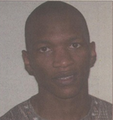
Award-winning writer Siphiwo Mahala has written several short stories and anthologies. He works for the Department of Arts and Culture.
He is also the recipient of the 2006 Ernest van Heerden Creative Writing Award for When a Man Cries. When did you start to write and at what point did you think of yourself as a writer? Writing, to me, is an offshoot of my passion for reading, a habit that I developed from an early age. I grew up as an introvert and the only boy in the family.
Books became my closest companion. I was particularly fond of comics such as Superman, Archie, and The Bafanas from Bona Magazine. I graduated from comics and began to read indiscriminately - from the short stories of PT Mtuze to Shakespeare. Literary studies was a natural choice for me when I got to tertiary level.
I published my first two short stories while doing a creative writing course at Rhodes University in 2001. I went on to do an MA in African Literature at Wits University in 2002, and published more stories that year. In the words of Es'kia Mphahlele, writing is an apprenticeship and to me, literary apprenticeship is a continuous process of intense reading and writing.
What attracts you to the short story genre? Writing short stories is liberating and it ignites my creative juices more than any other form of creative expression. I respond to the muse when it catches me and they can be told in one sitting, something evocative of oral narratives.
However, contrary to popular perception, writing short stories requires a lot of discipline as there is no luxury of time and space. One has to develop a story using very few characters, and every word used must be accounted for in order to develop a concrete and aesthetically powerful story.
Of all the stories in this collection, which was the hardest to write? Bhontsi's Toe, for a number of reasons. It is a tragic story based on a real life incident that left me traumatised for years. A childhood friend died in a similar way as Bhontsi in the story and I suppose it's a childhood trauma that I grew up with and never dealt with at the time. The story refused to forgive my silence.
I guess writing it was somewhat cathartic for me because I can now talk about it with less intense emotion. It is also what I regard as a story of friendship. Are there any special moments you remember about writing the book? One that stands out is when I took the first draft of The Lost Suit to Kimberly, where I was to meet with Dr Don Mattera.
The intention was to ask him to read it and let me know what he thought of my interpretation of Sophiatown of the 1950s. He refused to read the story. Instead, he told me to read aloud in the presence of other literary enthusiasts.
Not being much of a public speaker, I was quite reluctant and somewhat embarrassed but I could not miss the opportunity of getting feedback from the esteemed poet. While I was reading he would wince, exclaim, chuckle, and laugh out loud.
Sometimes he'd ask me to go back to a certain paragraph, and without him saying anything, I would know what was wrong with a word that I used. In that way, he made me aware of my own writing, the development of my plot, my choice of words, and the rhythm of my narrative.
That is the tactic that I apply in my writing now. Reading aloud, and listening while other people are reading aloud is important. What are you working on now? I am always writing something but what is taking shape now is what will be my next novel. All I can say about it is that it's a story of redemption with a rural setting.
Caption: NOTHING FOR MAHALA? Not so, as Siphiwo Mahala is reaping his rewards.
Article Source: SUNDAY WEEKEND ARGUS
